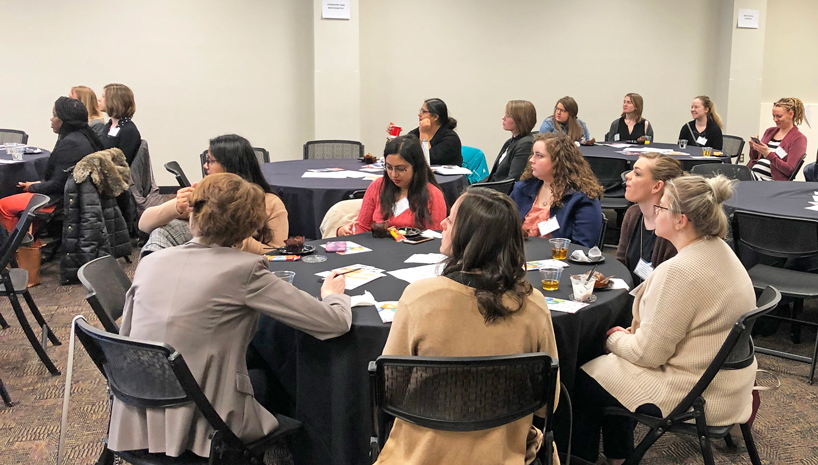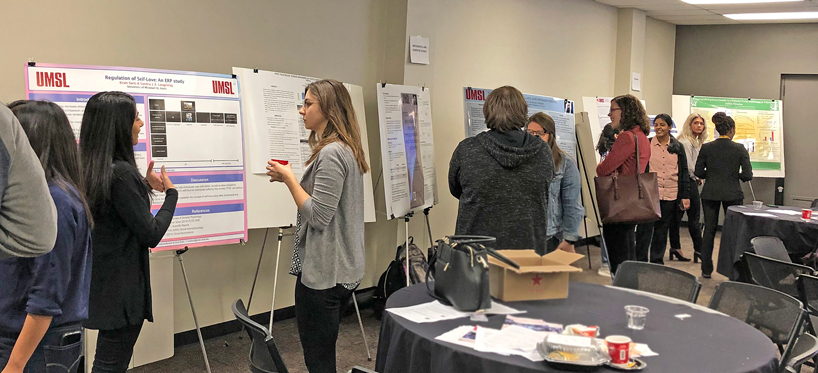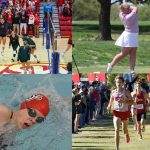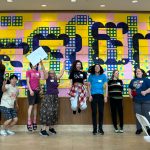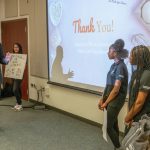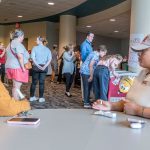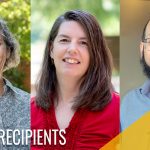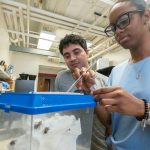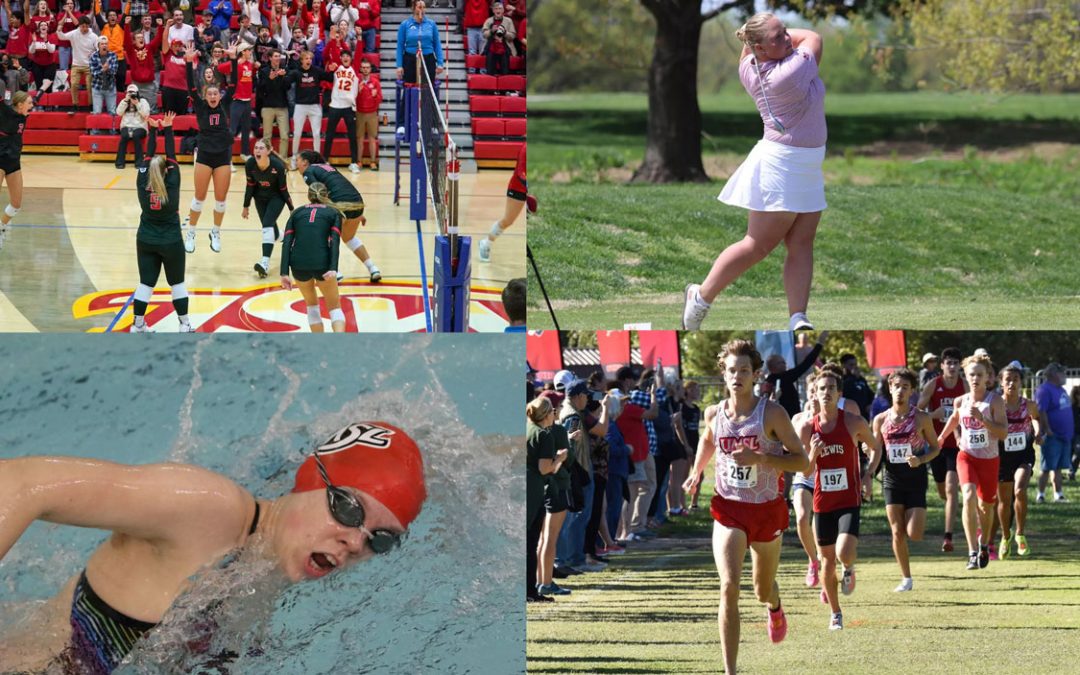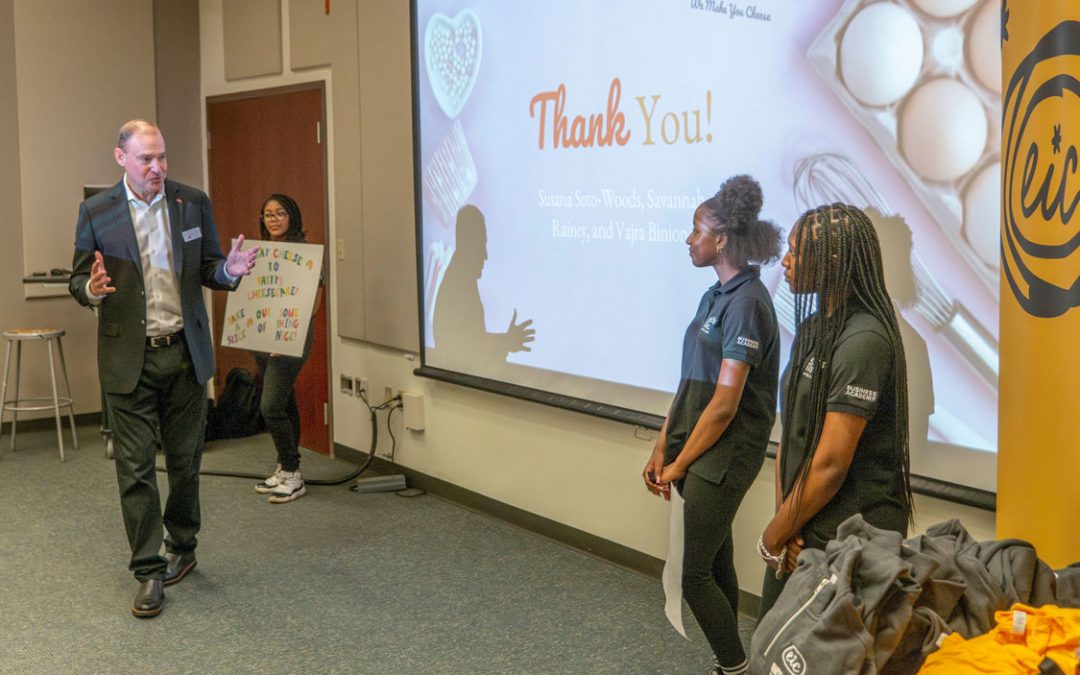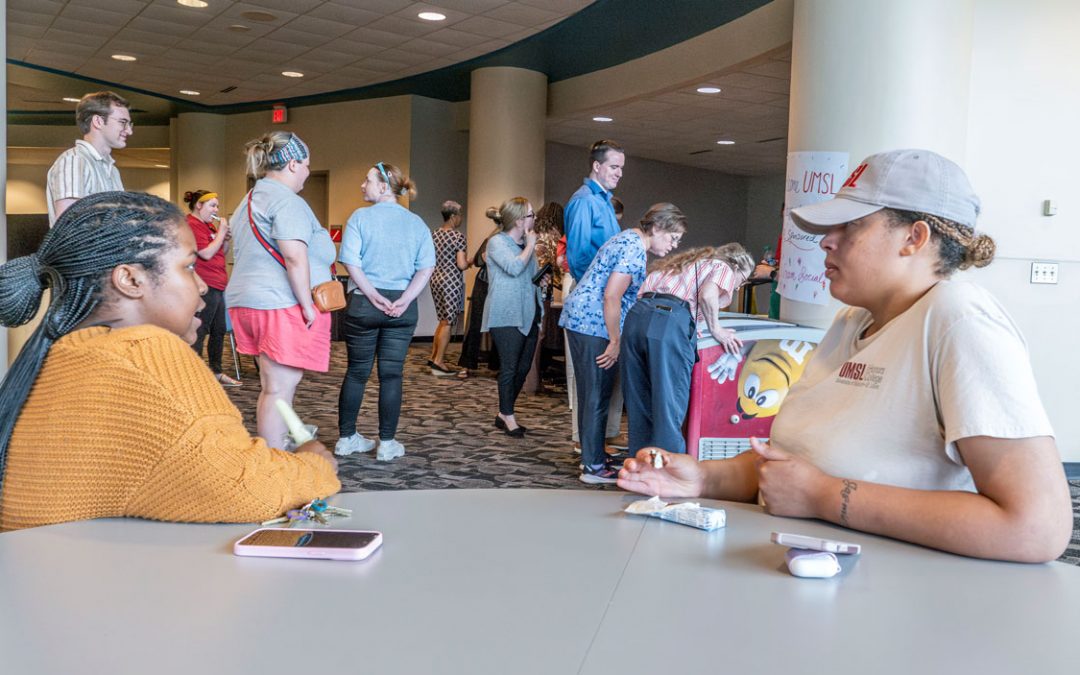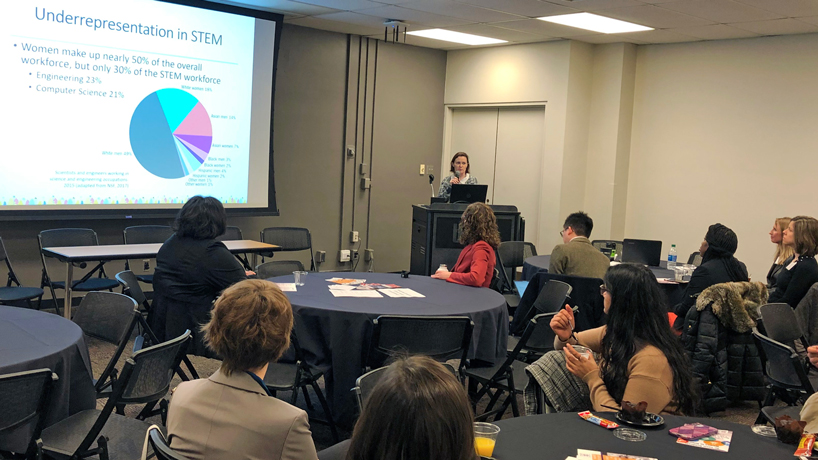
Bettina Casad, an associate professor in the Department of Psychological Sciences, shares statistics on the underrepresentation of women in STEM fields during Friday morning’s Graduate Women in Science Research Conference in Room 202 of the J.C. Penney Conference Center. (Photos by Steve Walentik)
Bettina Casad opened the floor to questions Friday morning in Room 202 of the J.C. Penney Conference Center after concluding a presentation titled “Effects of Threatening Intellectual Environments on Women in STEM.”
Her talk served as a launching point for a research conference put on by the St. Louis Chapter of Graduate Women in Science and focused on the need to bring more diverse voices into the fields of science, technology, engineering and mathematics.
In the presentation, Casad, an associate professor of behavioral neuroscience at the University of Missouri–St. Louis, shared data on the level of underrepresentation of women as well as people of color in STEM disciplines. She also highlighted some all-too-common experiences members of those groups have when operating out of their comfort zones in environments overwhelmingly occupied by white males.
Sophomore Beauty Cooper, sitting near the front of the room, raised her hand and stood to talk.
“I wanted to validate what you were saying about being a woman and a person of color and feeling like you’re in the wrong place,” she began. “All of that is true. I’ve experienced the meltdown on the test, where I kind of panicked and kind of froze. It’s not that I didn’t study or that I didn’t know it – I did. But it was a new environment. …
“But I know I belong here, and I’m going to work to knock down those things that I’m learning about now.”
The comments brought applause from those around her. She was hitting on things women aren’t always conscious of but that can serve as impediments to them entering or reaching their full potential in STEM fields.
Casad, vice president of the St. Louis Chapter of GWIS, imagined the conference as one way to try to change that.
A crowd of about 80 graduate students, undergraduates and faculty members attended the research conference.
UMSL’s Psi Chi Chapter and the Women Chemists Committee of the St. Louis Section of the American Chemical Society cosponsored the event. Appropriately timed during the university’s celebration of Women’s History Month, it drew an audience of about 80 graduate students, undergraduate and faculty members from not only UMSL but also Saint Louis University, Southern Illinois University Edwardsville and Washington University in St. Louis.
“The first thing I wanted for students in attendance was to see people who look like them,” Casad said. “So we showcased the work of women scientists and scientists who are from racial minority backgrounds. We know from the research that if you have someone who looks like you or someone who could serve as a role model, you feel a greater sense of belonging in STEM.”
Presenters Jessica Cundiff from Missouri University of Science and Technology, India Johnson from Butler University and Jill Allen from Drake University joined Calvin Lai from Washington University in St. Louis in offering some interventions designed to help foster greater diversity.
Later in the day, Lisa Balbes, a chemist, consultant and science writer, delivered a keynote presentation on “Effective Networking: Online and Off,” and UMSL faculty members Carissa Phillipi and Sandra Langeslag joined Missouri S&T’s Amy Belfi for a symposium on “Using Social, Cognitive, Clinical and Affective Neuroscience to Solve Social Problems.”
The event also featured a mentoring lunch where students could converse with and get advice from faculty members on such topics as careers in and out of academia, how to maintain a healthy work/life balance, how to prepare for and navigate graduate school and how to land and make the most of postdoctoral fellowships.
“Something I learned is that a lot of postdoctoral jobs are actually hidden and not really advertised,” said Amanda Wu, an UMSL doctoral student from China studying biology. “You really have to promote yourself, send a lot of emails and tell people why you’re good and why you want to join their lab and then try to sell yourself as a job candidate.”
A total of 22 graduate and undergraduate students displayed their research in poster presentations at the end of the conference.
That’s knowledge that she might have gained through conversations with faculty members in her department, but she appreciated having the forum the conference provided.
Later in the afternoon, Erin Whitteck, the assistant director of UMSL’s Center for Teaching and Learning, led a workshop on creating inclusive classrooms.
The conference concluded with poster presentations by 22 students in biology, chemistry and biochemistry, engineering, mathematics and computer science and psychological sciences.
One of them was Kendra Clark, a junior majoring in psychology, who even before Friday’s conference had felt encouraged to pursue STEM since coming to UMSL.
“There are a lot of women professors here,” she said, “so I can see where I could possibly go.”
Clark still took a lot of value from the conference and welcomed the chance to share her research on the relationship between anxiety metaperceptions – what a person thinks others are thinking about them.
Casad aims to make Friday’s conference an annual event, and she would like to see it grow beyond the UMSL campus, possibly to involve all four institutions in the University of Missouri System.

